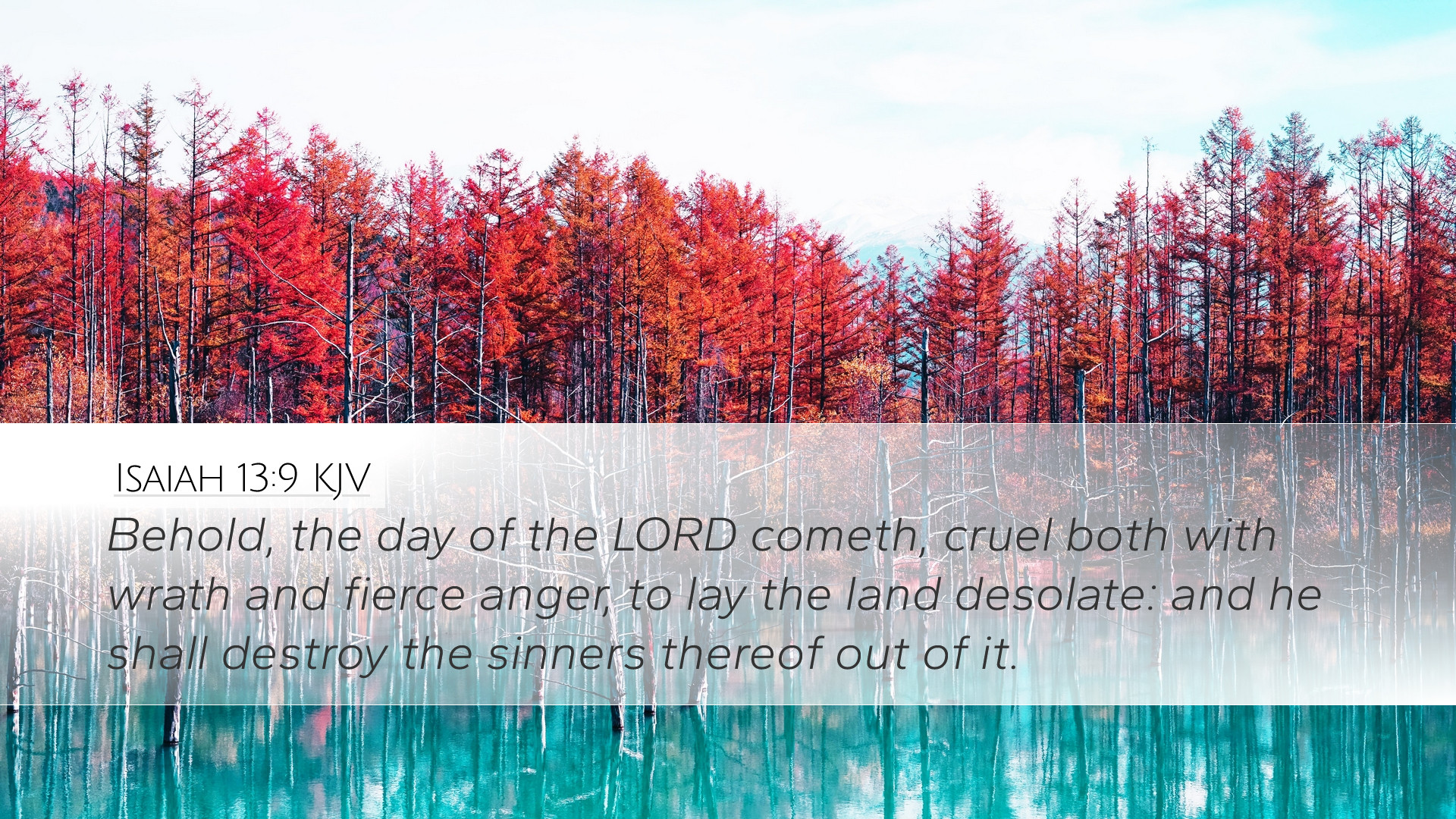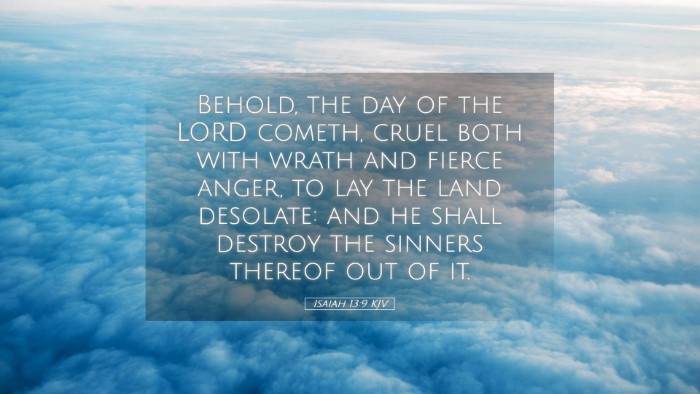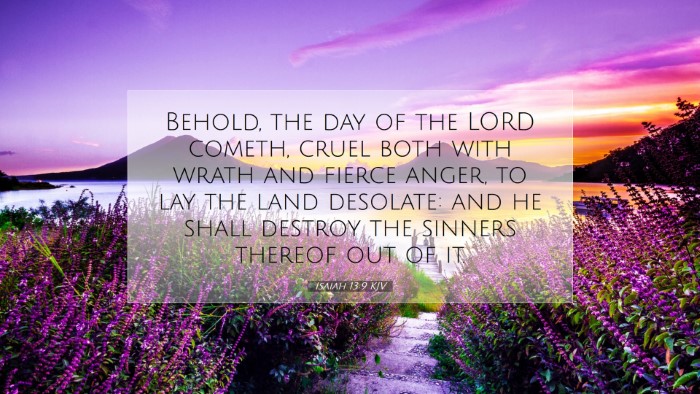Commentary on Isaiah 13:9
Verse: "Behold, the day of the LORD cometh, cruel both with wrath and fierce anger, to lay the land desolate: and he shall destroy the sinners thereof out of it."
Introduction
The prophecy in Isaiah 13:9 serves as a forewarning concerning the impending judgment of God upon Babylon. This verse encapsulates the overarching theme of divine retribution prevalent in the prophetic literature of the Old Testament. As we delve into various public domain commentaries, we will unearth theological, historical, and spiritual insights that illuminate our understanding of this pivotal scripture.
The Day of the Lord
The phrase "the day of the LORD" signifies a period of intervention by God in human affairs. Matthew Henry notes that this day constitutes not merely a temporal event but encompasses a broader realm where God's sovereignty is exercised with judgment and mercy. The emphasis on "cruel both with wrath and fierce anger" (Isaiah 13:9) underscores the severity of God's forthcoming judgment against sin. This serves as a reminder of God's holiness and the consequences of iniquity.
The Nature of God's Wrath
Albert Barnes provides further elucidation by emphasizing that God's wrath is not capricious but is rooted in His justice. God's fury is directed against sin and those who perpetuate it. He notes that the picture drawn in this verse conveys a vivid imagery of destruction aimed at the sinners, illustrating the stark reality of divine judgment.
The Concept of Sinners
Adam Clarke expands on the characterization of "sinners" in this passage. He explains that these individuals are those who have willfully turned away from God and embraced wickedness. Through Clarke’s lens, we see that this portion of the verse highlights the moral responsibility of humanity and the solemn consequences that accompany disobedience to God's commands.
Desolation of the Land
The phrase "to lay the land desolate" paints a grim picture of devastation. Matthew Henry explains that the desolation signifies not merely a physical destruction but also a spiritual desolation resulting from the absence of God’s favor. This void leads to chaos and disorder, embodying the consequences of straying from divine guidance. The loss of God’s presence renders a once-thriving community into a wasteland, both morally and spiritually.
Judgment as a Means of Purification
Furthermore, Barnes offers insight into the reason behind such judgment; he suggests that this divine response serves the purpose of purification. The Lord's wrath, while fierce, has redemptive opportunities embedded within it. Through the acknowledgment and experience of devastation, there lies potential for repentance and restoration.
Theological Implications
This passage invites theological reflection on the nature of God as a just judge. Clarke emphasizes that understanding God's fury against sin should not lead us to despair. Rather, it invites individuals to recognize the seriousness of sin and the beauty of God's grace when we acknowledge our failings. This duality reveals the heart of God—that he desires justice but also redemption.
Modern Application
In contemporary contexts, Isaiah 13:9 serves as a profound reminder of accountability. The imagery of God’s judgment can be unsettling, yet pastors, scholars, and theologians can utilize this scripture as a call to examine societal sins and injustices. There is a pressing need to confront moral failures within communities and individuals, which echoes the prophetic urgency present in Isaiah's message.
Conclusion
In conclusion, Isaiah 13:9 serves as a powerful reminder of the consequences of sin and the inevitability of divine justice. The fusion of themes regarding judgment and the potential for repentance creates a narrative that urges both individual and collective self-examination. As we enhance our understanding through the works of commentators like Matthew Henry, Albert Barnes, and Adam Clarke, may we be encouraged to embrace God's call for holiness, remembering that in His fierce anger lies a desire for restoration and reconciliation.


